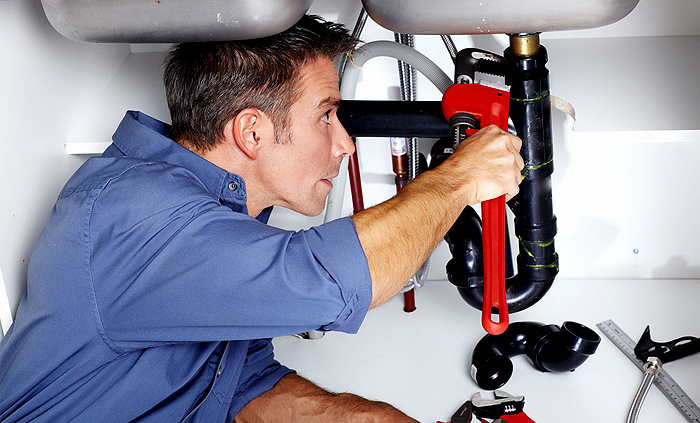Trusting a tradesman has been an obstacle for folks who experience a plumbing emergency in Wellington. Calling on an experienced plumber in the Wellington region can be a daunting task: especially when you need to be able to confidently rely on said Wellington plumber or gasfitter to rescue your home from a burst pipe, blocked toilet or basement flood!
The team at Plumbspec feel it is extremely important that our customers feel they can confidently call on us to promptly and professionally deliver plumbing services in Wellington. With qualifications to boot and years of experience in the industry, you can rely on Plumbspec to bring a positive plumbing experience to any call we answer: we are the plumbing specialists who care!
Prompt. Professional and above all…reliable. You can guarantee good service from our experienced team!
Would you like to get to know a little more about our team of plumbers and gasfitters in Wellington?
Last month we shared part of an article that we believe will help customers to understand their plumbers a little more positively. Today we’d like to share the remaining questions directed at an experienced plumber, and we hope you enjoy getting to know our side of the story!
This article was written by Jeremy Anderberg, and the original can be found on The Art of Manliness website.
What was your path to becoming a plumber? What kind of training and certifications did you need?
The best way is to go the old-fashioned route through apprenticeship. An apprenticeship means that a young person finds his way into a reputable company and is trained by multiple technicians, or, in my case (and I think the best case) works one-on-one with a master of the trade. So, you find a small company where the Master is perhaps in his waning years (frankly those begin typically in a person’s 40s). Then, basically you shadow him for months, and you’re learning what parts and tools are. Then, pretty soon, you’re adept enough to determine the needs, and you’re able to have the tool or part in hand as it’s needed. Then, you’re good enough to handle some tasks on your own, then some tasks without supervision.
What would you recommend for someone going into plumbing today?
Trade school, or just going to a small shop like yours and saying “I want a job”?
Both routes are available. I’d say that the trade school route is typically going to steer a candidate toward a commercial field, so he might be more apt to work for a union shop or commercial projects, and that has its pluses and minuses like anything else. Residential shops typically are dominating the service industry.
Now, I wouldn’t recommend that an aspiring plumber hire on with building new construction, or doing production work. You might learn plumbing skills, but what you’re really going to learn is production skills. You’re not going to learn anything about communicating with the customer. You’re not going to learn anything about best practices or diagnosing problems that would really enable you to step up in the industry. Frankly, those type of shops are turn and burn shops, their employee turnover is high, the benefits are usually non-existent, and the paydays are considerably lower. Our service industry needs people who’ve got great communication skills and mechanical skills. That’s a tricky combination.
What would you say is the best part of your career?
I think the best part is knowing that after this many years, in this area for 20 years now, we’ve seen an impact and we see recognition. Knowing that we’ve built a reputation of fairness. We’ve done between 2,500 and 3,000 service calls a year. You’re going to have complaints and you’re even going to have people you can’t satisfy. But, the bulk of those appointments and the bulk of those calls are very happy with us. We want to grow the company, and we’re building it on the foundation of the thousands of customers we’ve served faithfully.
What is the worst part of your career?
By far the worst thing about being a residential service plumber is the potential for contact with human waste. Clogged or broken sewer lines still require hands-on attention. A broken sewer line in a crawl space or basement can be pumped out and treated before a repair is made, but the conditions are still foul. Some homes require sewage ejection systems; picture a large garbage can with a pump inside needed to collect all of the home’s sewage and pump it to a higher connection. When any part of that system fails, a plumber is asked to address the most foul concentration of waste possible, and make it right again. Experience gradually hardens us to these conditions, but care must always be exercised to limit contact and prevent disease with body suits, eye protection, rubber gloves, and more.

